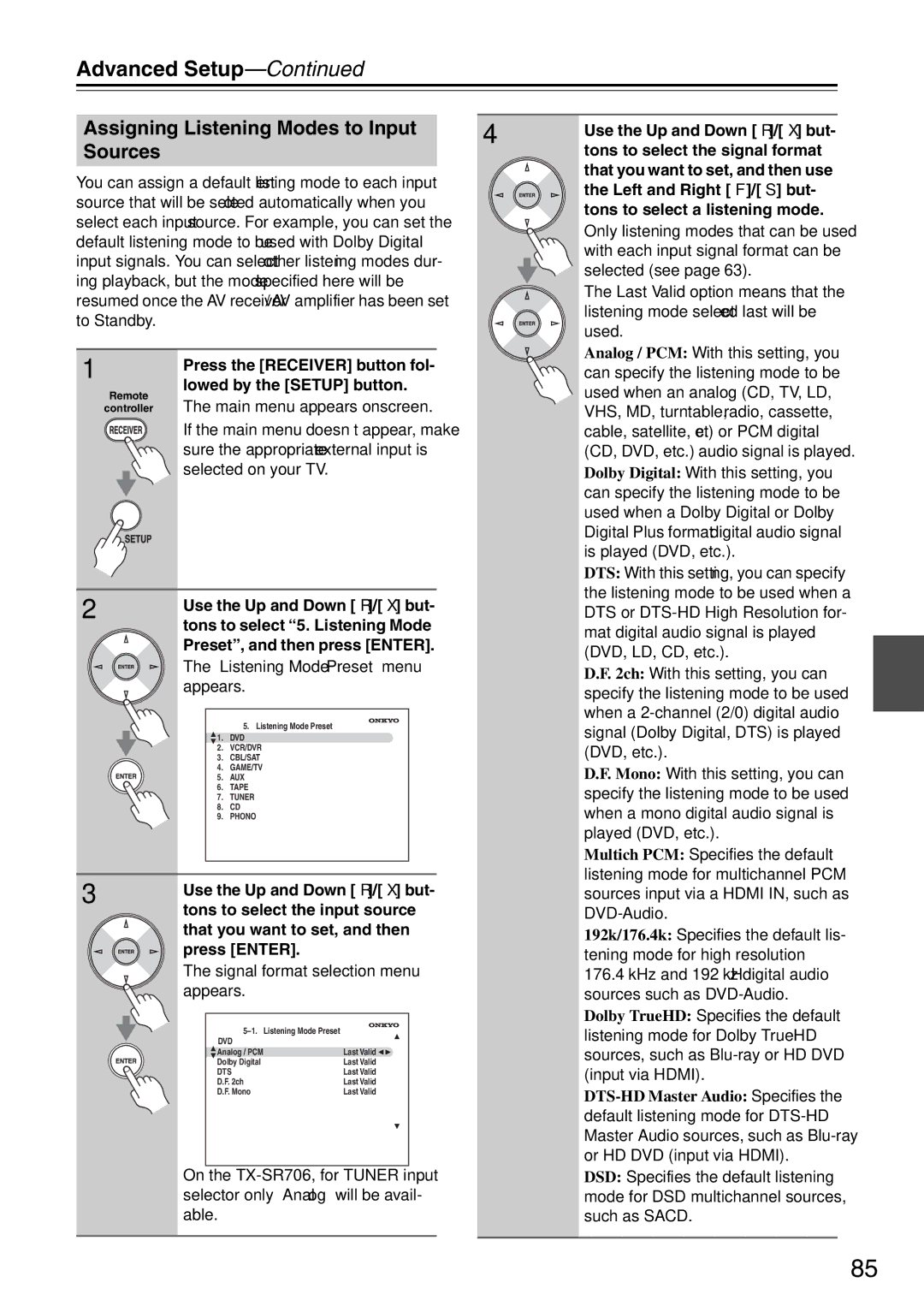TX-SA706 specifications
The Onkyo TX-SA706 is a sophisticated, high-performance AV receiver designed to elevate your home theater experience. As part of Onkyo's esteemed lineup, this receiver offers a combination of advanced features, innovative technologies, and impressive specifications that cater to the needs of audiophiles and home cinema enthusiasts alike.One of the standout features of the TX-SA706 is its powerful amplification system. With multiple channels delivering robust power output, it is capable of driving most speaker configurations, from a standard 5.1 surround sound setup to more elaborate systems. This ensures that you get a rich and immersive audio experience perfect for movies, music, and gaming.
The TX-SA706 supports high-definition audio formats, including Dolby Atmos and DTS:X, allowing for an intricate and lifelike soundstage. These immersive technologies use object-based audio to place sound in a three-dimensional space, creating a more engaging listening experience. Coupled with the receiver’s ability to decode lossless audio formats, listeners can enjoy their content in superior quality.
Video performance is equally impressive, with support for 4K Ultra HD video pass-through and upscaling. The receiver features multiple HDMI inputs and outputs, allowing for seamless connectivity with all your devices, including Blu-ray players, gaming consoles, and streaming gadgets. Additionally, it is compatible with HDR10, Dolby Vision, and BT.2020, ensuring vibrant colors and sharp images for a cinematic viewing experience.
Connectivity options are extensive, as the TX-SA706 comes equipped with built-in Wi-Fi and Bluetooth capabilities. This allows for easy streaming from various devices and music services, making it convenient to access your favorite playlists and tracks wirelessly. For those who prefer a more traditional approach, the receiver is outfitted with multiple analog and digital inputs, ensuring compatibility with a wide array of audio sources.
The TX-SA706 also includes Zone 2 and Zone 3 features, enabling multi-room audio setups so that different areas of your home can enjoy different audio sources simultaneously. This flexibility makes it a perfect choice for those who wish to extend their audio experience beyond a single room.
In summary, the Onkyo TX-SA706 is a versatile AV receiver that exhibits powerful performance, advanced audio and video technologies, and comprehensive connectivity options. Its combination of immersive sound, stunning visuals, and multi-room capabilities make it an excellent choice for enhancing your home entertainment system, ensuring that every viewing and listening session is one to remember.

